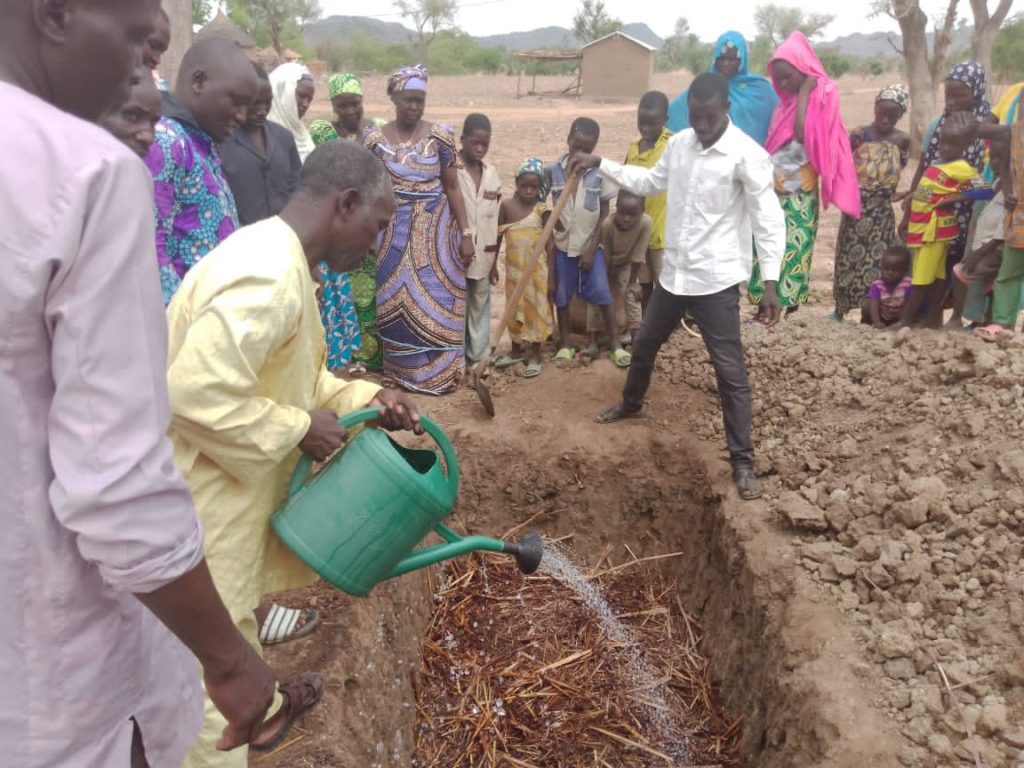
More Income, Less Drudgery
The creation of community cereal banks is having a positive effect on farming and family food security. Local partner RELUFA reports that the grain the farmers save communally at harvest has greatly benefited them at the start of the traditional hunger months, July to September. For example, if they need to go to the local market for maize or millet, a bag could cost up to $47, but they can buy one at the community grain bank for as low as $34. Not only do farm families have access to grain at a time when they might have had none before, the money they save allows them to purchase other foods to make up their three daily meals. All without having to sell other precious commodities like goats that provide milk and meat.
In addition, the program teaches composting and conservation agriculture techniques that produce good harvests with lower input costs, allowing farmers to put a little bit more land under cultivation. With the extra income, they are finding ways to reduce their labor while improving their yields, such as buying irrigation equipment. One woman who started out relying on rain-fed agriculture or carrying water was able to rent a motorized pump to irrigate, then eventually saved enough to buy her own. Her goal is to increase her income to the point of being able to support her household of six and send her children to school by growing onions, tomatoes and other vegetables. People like her who own pumps are willing to loan or rent them to their neighbors.
Another program goal is to make motorized mills available to process grain. This will improve the lives of women and children who often spend much of their day endlessly grinding maize or millet to produce flour for their meals. Lucky ones can trek a couple of miles to neighboring villages that own a grinding machine. In January, RELUFA provided a mill to one village with support from an organization in Germany and plans to provide more mills as funds become available, enabling women and children to free up time to avoid this drudgery and improve their lives and livelihoods in other ways.
Cameroon Far North Program
Led by Presbyterian Church (U.S.A.) and Local Partner RELUFA
